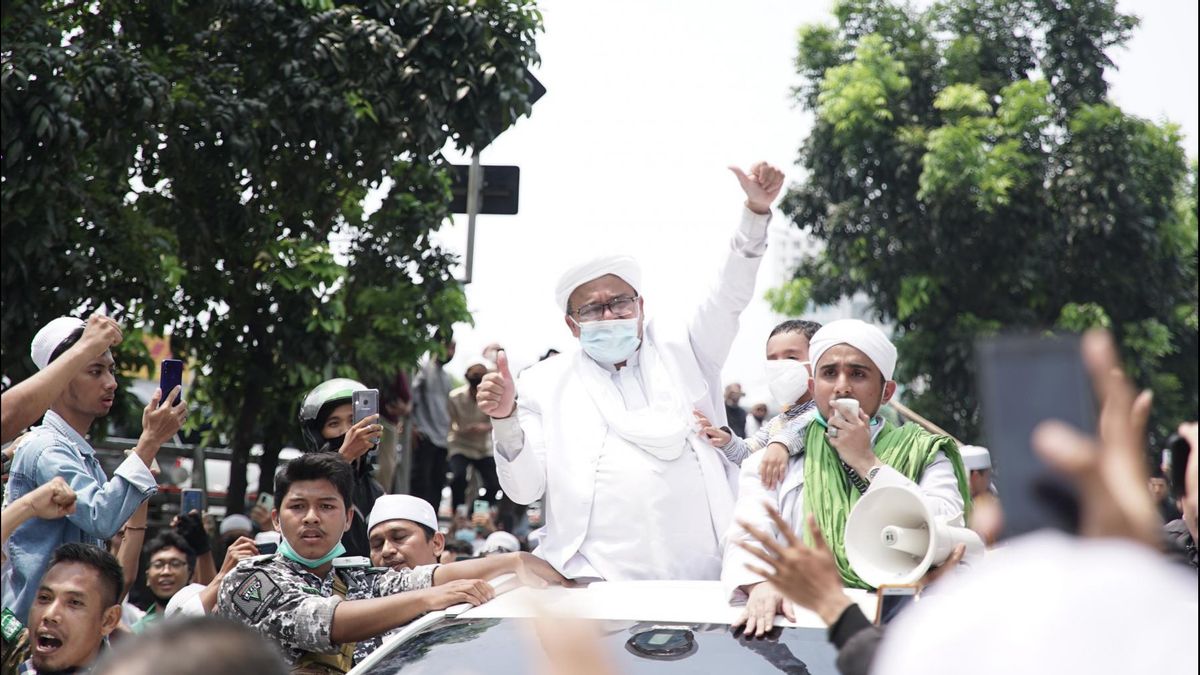JAKARTA - Members of Commission III of the House of Representative (DPR) from the Gerindra faction, Habiburokhman said the Rizieq Shihab case related to crowds in the midst of a pandemic could be resolved using a restorative justice approach.
This was conveyed to Attorney General S.T. Burhanuddin during a Working Meeting between Commission III of the DPR and the Attorney General's Office.
"I hope this can be done with a restorative justice approach. The first is the case of the Habib Rizieq Shihab crowd," said Habiburokhman during a work meeting broadcast on the YouTube account of the DPR RI, Tuesday, January 26.
According to him, the solution using a restorative justice approach is considered appropriate because Rizieq has admitted his mistake in the crowd case which resulted in him being imprisoned and responsible for his actions. Rizieq has also paid a fine related to the crowd in Petamburan, Jakarta.
"So, I think that by not intervening in the legal process and by respecting the law enforcers who do this, this process can be done through a restorative justice process," said Habiburokhman.
Quoted from the Hukum Online clinic, restorative justice focuses on solving criminal cases by involving perpetrators, victims, families of perpetrators/victims, and other related parties to seek a fair solution together by emphasizing restoration to its original state, and not retaliation.
The principle of restorative justice cannot be interpreted as a method of terminating a case peacefully, but it is broader in fulfilling a sense of justice for all parties involved in a criminal case through efforts involving victims, perpetrators and local communities as well as investigators/examiners as mediators.
Whereas in the settlement of cases, one of which is in the form of a peace agreement and the revocation of the right to sue from the victim, it is required to request a judge validation through the public prosecutor to invalidate the power to sue from the victim, and the public prosecutor.
There are material and formal requirements in solving cases based on restorative justice. The material requirements include, not causing public unrest or not causing community rejection, not having an impact on social conflict, the perpetrator's error level is relatively minor, which is a matter of deliberation as an intention or goal.
Meanwhile, the formal requirements include a deed of settlement from both parties (reporter and reported), a statement of conciliation, as well as the perpetrator does not object to responsibility and compensation.
What about the case of incitement until the Rizieq Shihab crowd appeared?
Rizieq Shihab was named a suspect in 3 cases, namely the incitement of the Petamburan crowd, the Megamendung crowd and the case of blocking the COVID-19 task force at the Bogor Ummi Hospital
“Restorative (requires) victims. In the case of crowds, Rizieq could not have been arrested. He could be arrested if it's a case of sedition,” said a criminal law expert from Lambung Mangkurat University, South Kalimantan (Kalsel), Mispansyah, when contacted by VOI, Tuesday, January 26.
Regarding the crowd problem, Rizieq Shihab according to Mispansyah has already paid a fine related to the Health Quarantine Law.
"Restorative justice, in fact, requires victims and situation recovery due to violation of public order regulations. Meanwhile (for the case) of incitement, material offense must be fulfilled, ”continued Mispansyah.
According to him, restorative justice is usually applied in defamation cases. Including hate speech cases.
"Defamation case might be (restorative justice), because it is related to two parties," he added.
"(For the Rizieq case) in my opinion it's about discretion from the Police. The policy at the Police is if the crime does not fulfill the element of offense," continued Mispansyah.
The English, Chinese, Japanese, Arabic, and French versions are automatically generated by the AI. So there may still be inaccuracies in translating, please always see Indonesian as our main language. (system supported by DigitalSiber.id)













